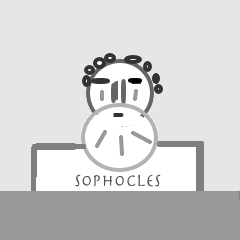Soon after Johnson's return to the metropolis, both the asthma and dropsy became more violent and distressful. He had for some time kept a journal in Latin of the state of his illness, and the remedies which he used, under the title of Aegri Ephemeris {The Patient’s Diary – Editor}, which he began on the 6th of July, but continued it no longer than the 8th of November; finding, I suppose, that it was a mournful and unavailing register. It is in my possession; and is written with great care and accuracy.
Still his love of literature did not fail. It is truly wonderful to consider the extent and constancy of Johnson's literary ardour, notwithstanding the melancholy which clouded and embittered his existence. Besides the numerous and various works which he executed, he had, at different times, formed schemes of a great many more, of which the following catalogue was given by him to Mr. Langton, and by that gentleman presented to his Majesty:
'DIVINITY:
'A small book of precepts and directions for piety; the hint taken from the directions in Morton's exercise.
'PHILOSOPHY, HISTORY, and LITERATURE in general:
'History of Criticism, as it relates to judging of authours, from Aristotle to the present age. An account of the rise and improvements of that art; of the different opinions of authours, ancient and modern.
'Translation of the History of Herodian.
'New edition of Fairfax's Translation of Tasso, with notes, glossary, &c.
'Chaucer, a new edition of him, from manuscripts and old editions, with various readings, conjectures, remarks on his language, and the changes it had undergone from the earliest times to his age, and from his to the present: with notes explanatory of customs, &c., and references to Boccace, and other authours from whom he has borrowed, with an account of the liberties he has taken in telling the stories; his life, and an exact etymological glossary.
'Aristotle's Rhetorick, a translation of it into English.
'A Collection of Letters, translated from the modern writers, with some account of the several authours.
'Oldham's Poems, with notes, historical and critical.
'Roscommon's Poems, with notes.
'Lives of the Philosophers, written with a polite air, in such a manner as may divert as well as instruct.
'History of the Heathen Mythology, with an explication of the fables, both allegorical and historical; with references to the poets.
'History of the State of Venice, in a compendious manner.
'Aristotle's Ethicks, an English translation of them, with notes.
'Geographical Dictionary, from the French.
'Hierocles upon Pythagoras, translated into English, perhaps with notes.
'A book of Letters, upon all kinds of subjects.
'Claudian, a new edition of his works, cum notis variorum, in the manner of Burman.
'Tully's Tusculan Questions, a translation of them.
'Tully's De Natura Deorum, a translation of those books.
'Benzo's New History of the New World, to be translated.
'Machiavel's History of Florence, to be translated.
'History of the Revival of Learning in Europe, containing an account of whatever contributed to the restoration of literature; such as controversies, printing, the destruction of the Greek empire, the encouragement of great men, with the lives of the most eminent patrons and most eminent early professors of all kinds of learning in different countries.
'A Body of Chronology, in verse, with historical notes.
'A Table of the Spectators, Tatlers, and Guardians, distinguished by figures into six degrees of value, with notes, giving the reasons of preference or degradation.
'A Collection of Letters from English authours, with a preface giving some account of the writers; with reasons for selection, and criticism upon styles; remarks on each letter, if needful.
'A Collection of Proverbs from various languages.
'A Dictionary to the Common Prayer, in imitation of Calmet's Dictionary of the Bible.
'A Collection of Stories and Examples, like those of Valerius Maximus.
'Collection of Travels, Voyages, Adventures, and Descriptions of Countries.
'Dictionary of Ancient History and Mythology.
'Treatise on the Study of Polite Literature, containing the history of learning, directions for editions, commentaries, &c.
'Maxims, Characters, and Sentiments, after the manner of Bruyère, collected out of ancient authours, particularly the Greek, with Apophthegms.
'Classical Miscellanies, Select Translations from ancient Greek and Latin authours.
'Lives of Illustrious Persons, as well of the active as the learned, in imitation of Plutarch.
'Judgement of the learned upon English authours.
'Poetical Dictionary of the English tongue.
'Considerations upon the present state of London.
'Collection of Epigrams, with notes and observations.
'Observations on the English language, relating to words, phrases, and modes of Speech.
'Minutiae Literariae, Miscellaneous reflections, criticisms, emendations, notes.
'History of the Constitution.
'Comparison of Philosophical and Christian Morality, by sentences collected from the moralists and fathers.
'Plutarch's Lives, in English, with notes.
'POETRY and works of IMAGINATION:
'Hymn to Ignorance.
'The Palace of Sloth,— a vision.
'Coluthus, to be translated.
'Prejudice,— a poetical essay.
'The Palace of Nonsense,— a vision.'


















































